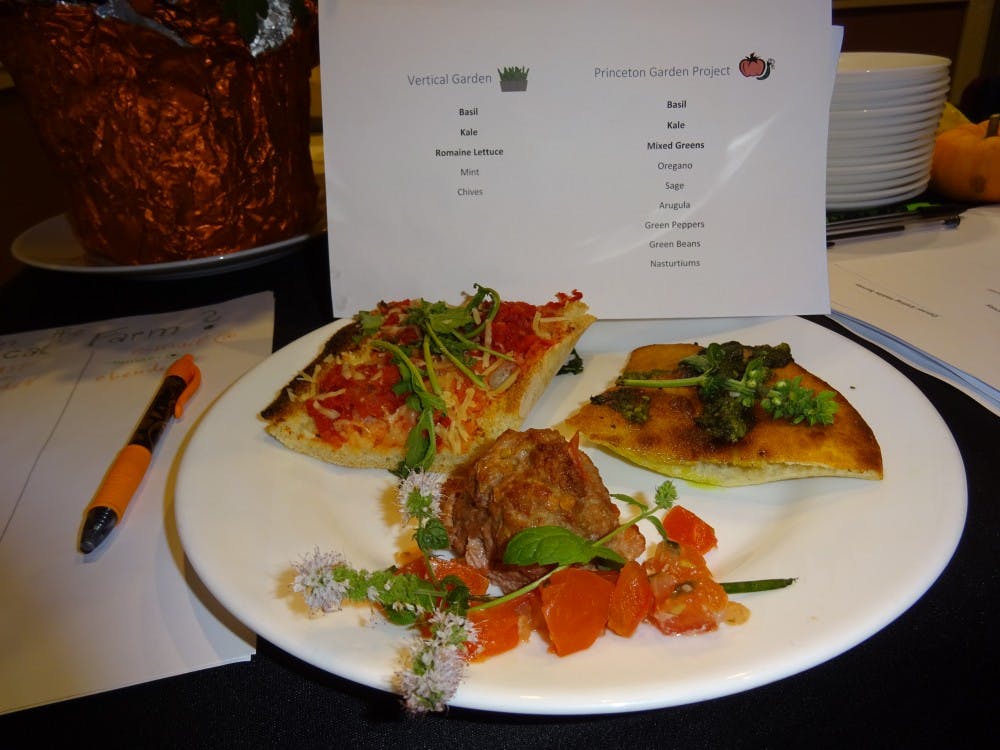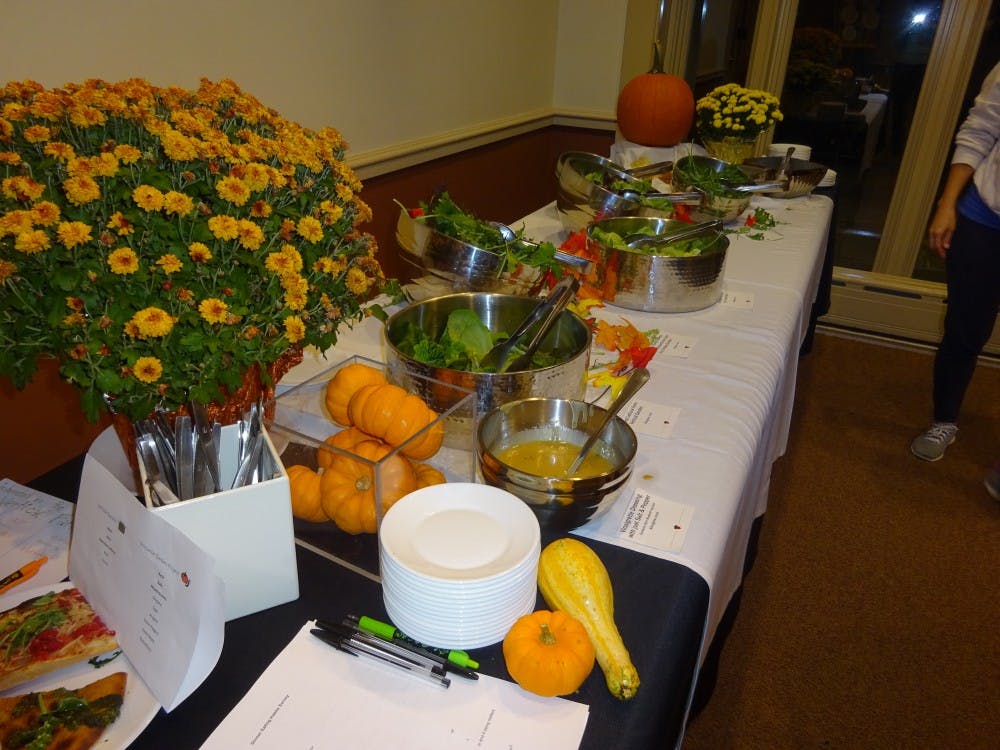“Plants don’t have weekends, y’know?” jokingly remarked Paul Gauthier, an associate research scholar and spearhead of the Princeton Vertical Farming Project, at the Meet What You Eat dining event hosted at Forbes College on Tuesday, Oct. 24.
The Meet What You Eat event marked the first time since the Princeton Vertical Farming Project's founding six months ago that the group has brought its food to the public or students. The event featured herbs and lettuce grown at the farm, featured in different dishes, such as flatbreads.

At dinner, Gauthier discussed the nature of growing harvestable crops for on-campus consumption, a sustainability initiative that both the Princeton Garden Project and the Princeton Vertical Farming Project have taken upon themselves.
According to Gauthier, the main reason so many groups at the University are trying to think of new and innovative ways to grow food on campus is due to the imminent threat of population growth’s strain on world resources. He explained that world population is projected to reach 9.1 billion by 2050 and that feeding that population will be a serious issue. As cities will grow to accommodate this rising population, the amount of arable land needed to produce people’s food will decrease at roughly the same pace, thus causing an eventual reckoning, according to Gauthier.
At the Vertical Farming Project, plants are grown indoors hydrophonically in Moffett Laboratory using artificial lighting, water, nutrients, and cutting-edge technology. Gauthier explained that this process is completely sustainable, producing zero carbon, energy, or water waste. He noted that he even delivers fresh produce by foot.

“We [the Princeton Vertical Farming Project] are showing that we can really produce,” Gauthier said. “We are proving to the University that Princeton can do it, that it’s sustainable for Princeton to do it, and that we can feed the students with it.”









